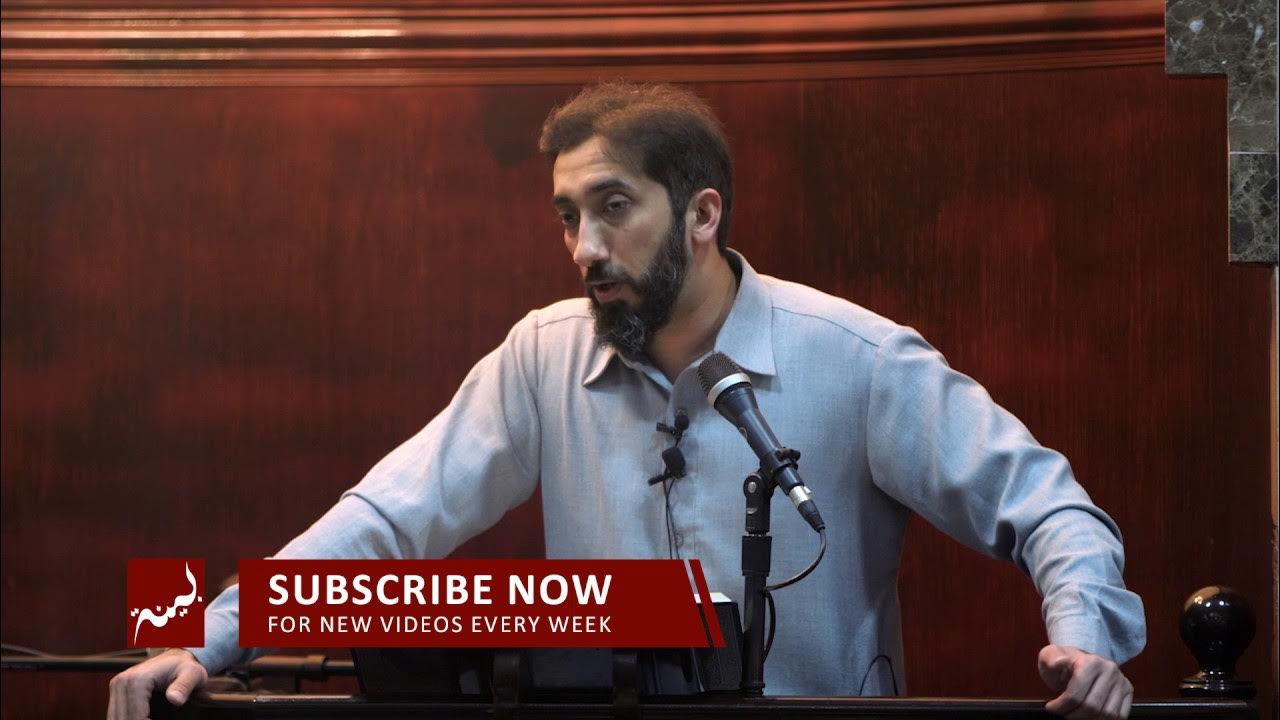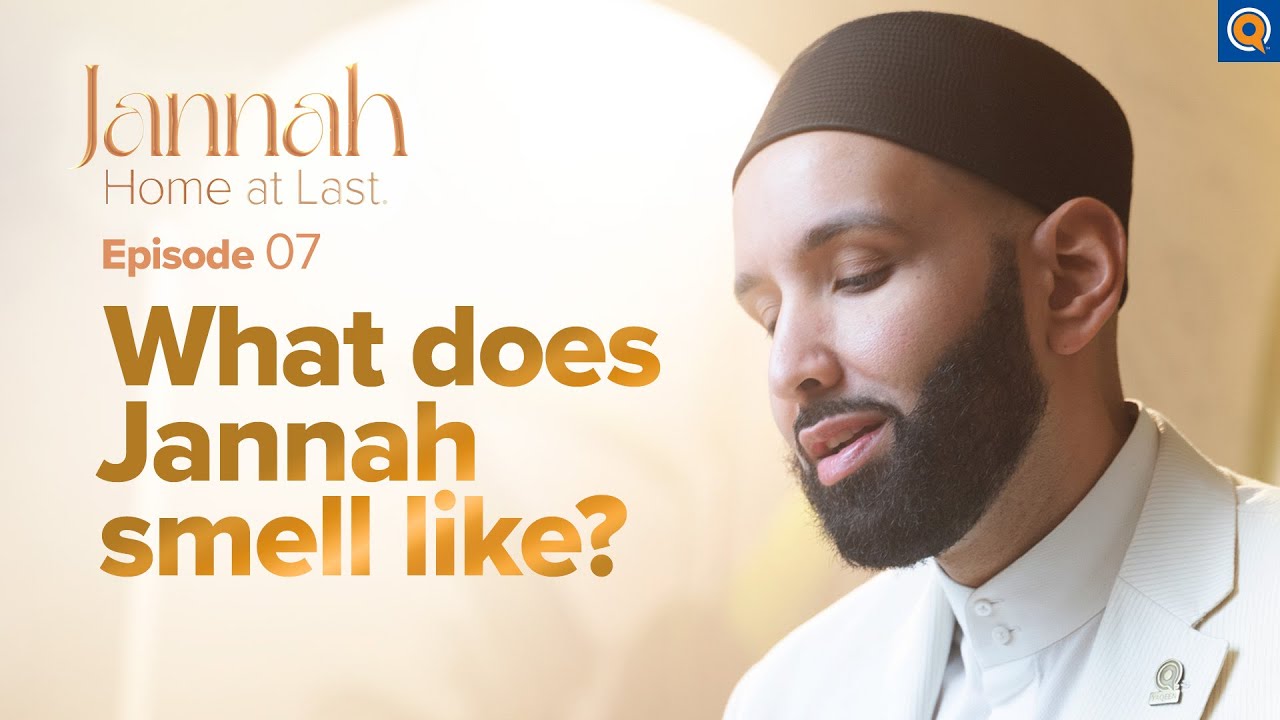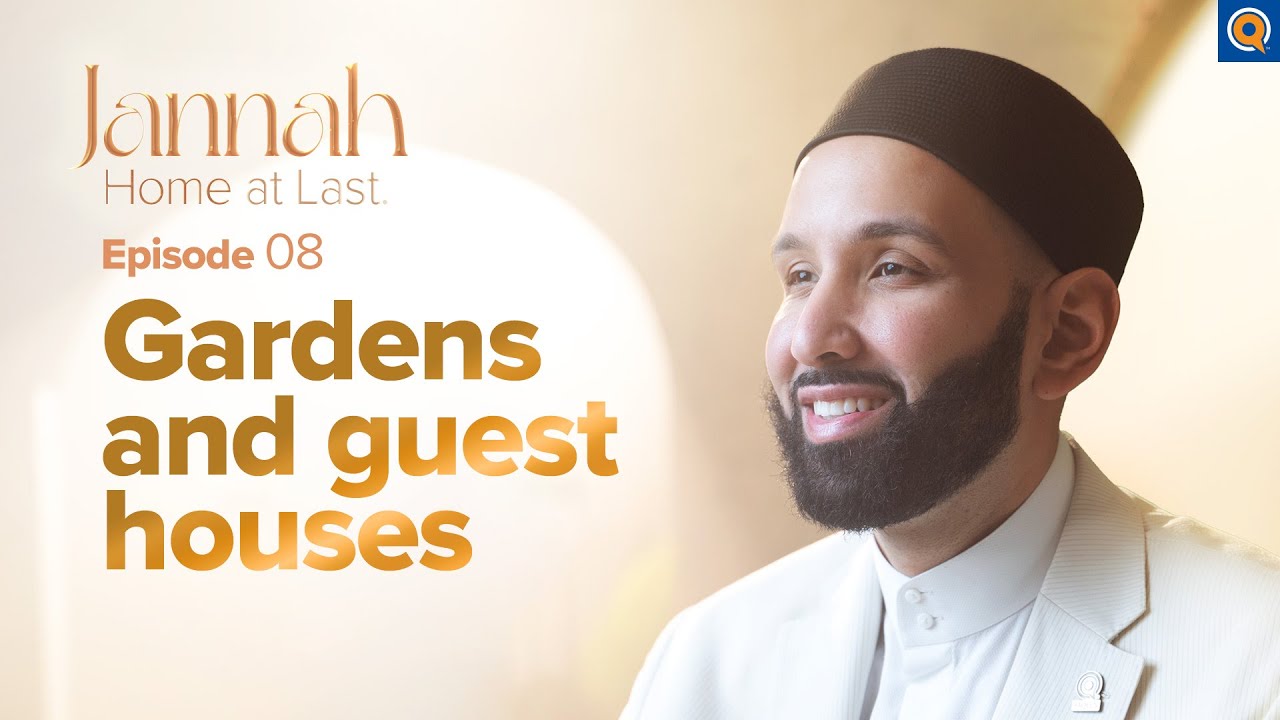The Moment You Get to Jannah | Ep. 2 | #JannahSeries with Dr. Omar Suleiman
Summary
TLDRThe video discusses the journey of believers entering Jannah (Paradise) at different times, ranks, and through various gates. It emphasizes the importance of striving for righteousness in this world to hasten one's entry into Jannah and achieve a higher station. The Prophet Muhammad (PBUH) described different gates, such as those for prayer, charity, fasting, and jihad, and shared stories of individuals like Abu Bakr (RA) who excelled in multiple areas. The video highlights how Allah's mercy surpasses His wrath, and how believers are rewarded in groups, entering Jannah together with joy and celebration.
Takeaways
- 🌟 Not everyone enters Jannah at the same time or occupies the same rank, but everyone will be pleased once they enter.
- 🚪 The Prophet Muhammad (PBUH) mentioned specific gates in Jannah for people who excel in certain deeds, such as Salah, Sadaqah, Jihad, and fasting.
- 🙌 The first to enter Jannah are those who praise Allah at all times, in good and bad circumstances.
- 💧 Believers will be purified at the gates of Jannah by drinking from a river and bathing, removing impurities inside and out.
- 🕌 There are eight gates to Paradise, one of which is for those who were not called to account, and the poor will enter faster due to fewer burdens.
- 🚶♂️ Believers will enter Jannah in groups, and they will be filled with happiness, unlike the people of Hellfire who curse each other.
- 🔑 The key to Jannah is La ilaha illa Allah, but the 'teeth' of that key are our deeds, determining our station and order of entrance.
- 📜 Believers will also have a 'passport' on the Sirat bridge, allowing them entrance into Jannah with Allah's permission.
- 👑 Abu Bakr (RA), despite not being poor, will be among the first to enter Jannah because he excelled in all areas of worship.
- 🎁 The gates of Jannah slowly open, revealing its beauty gradually, whereas the gates of Hell open suddenly as people are thrown in.
Q & A
What is the significance of different gates in Paradise?
-The gates of Paradise represent different paths of worship and good deeds, such as the gate of Salah (prayer), the gate of Sadaqah (charity), and the gate of Fasting. Each gate is reserved for those who excel in specific acts of worship.
Why do some people enter Jannah faster than others?
-People enter Jannah at different times based on their deeds and how light or heavy their accounts are. The poor and downtrodden, who have fewer burdens, often enter Paradise faster.
Who are the 'hammadoon' mentioned in the script?
-The 'hammadoon' are those who constantly praise Allah in all circumstances, both in good times and bad. They are among the first to enter Jannah due to their unwavering gratitude.
What is the significance of wudu in relation to entering Jannah?
-Performing wudu (ablution) perfectly and reciting a specific dua after it opens all eight gates of Paradise, symbolizing the importance of maintaining purity and consistency in prayer.
How does Allah’s mercy exceed His wrath in the context of Jannah and Hell?
-Paradise has eight gates, while Hellfire has seven, symbolizing that Allah's mercy (represented by the greater number of gates to Paradise) exceeds His wrath.
What role does the Prophet Muhammad (PBUH) play in leading the ummah to Jannah?
-Prophet Muhammad (PBUH) will be the first to enter Paradise and lead his ummah (followers) through the gates. He will personally hold the chain of Paradise’s gate, and his ummah will follow behind him.
What is the metaphorical 'key' to Jannah?
-The metaphorical 'key' to Jannah is the declaration of faith, 'La ilaha illa Allah' (There is no god but Allah). However, the 'teeth' of this key are the good deeds one performs, determining their place and rank in Jannah.
What is the special gate reserved for the ummah of Prophet Muhammad (PBUH)?
-There is a wide gate reserved for the ummah of Prophet Muhammad (PBUH) to enter Jannah. Despite its size, people will be squeezed together due to the vast number of entrants, showing the mercy and favor Allah has for this ummah.
What is the significance of the 'waiting area' outside the gates of Jannah?
-Before entering Jannah, believers will gather near a tree with two rivers, one for drinking and one for bathing. This process purifies them both internally and externally, preparing them for entry into Paradise.
How do groups of believers enter Jannah?
-Believers enter Jannah in groups, rejoicing together and congratulating one another. This reflects the communal worship they engaged in during life, such as praying and performing Hajj together.
Outlines

Esta sección está disponible solo para usuarios con suscripción. Por favor, mejora tu plan para acceder a esta parte.
Mejorar ahoraMindmap

Esta sección está disponible solo para usuarios con suscripción. Por favor, mejora tu plan para acceder a esta parte.
Mejorar ahoraKeywords

Esta sección está disponible solo para usuarios con suscripción. Por favor, mejora tu plan para acceder a esta parte.
Mejorar ahoraHighlights

Esta sección está disponible solo para usuarios con suscripción. Por favor, mejora tu plan para acceder a esta parte.
Mejorar ahoraTranscripts

Esta sección está disponible solo para usuarios con suscripción. Por favor, mejora tu plan para acceder a esta parte.
Mejorar ahoraVer Más Videos Relacionados

Meeting Your Angels in Jannah | Ep. 21 | #JannahSeries with Dr. Omar Suleiman

Jannah’s Thrones and Couches | Ep. 17 | #JannahSeries with Dr. Omar Suleiman

The Prize of Submission to Allah - Khutbah by Nouman Ali Khan

The Fragrance and Weather of Jannah | Ep. 7 | #JannahSeries with Dr. Omar Suleiman

The Gardens of Jannah | Ep. 8 | #JannahSeries with Dr. Omar Suleiman

Jannah | How Life Would Be In The Heaven?
5.0 / 5 (0 votes)
